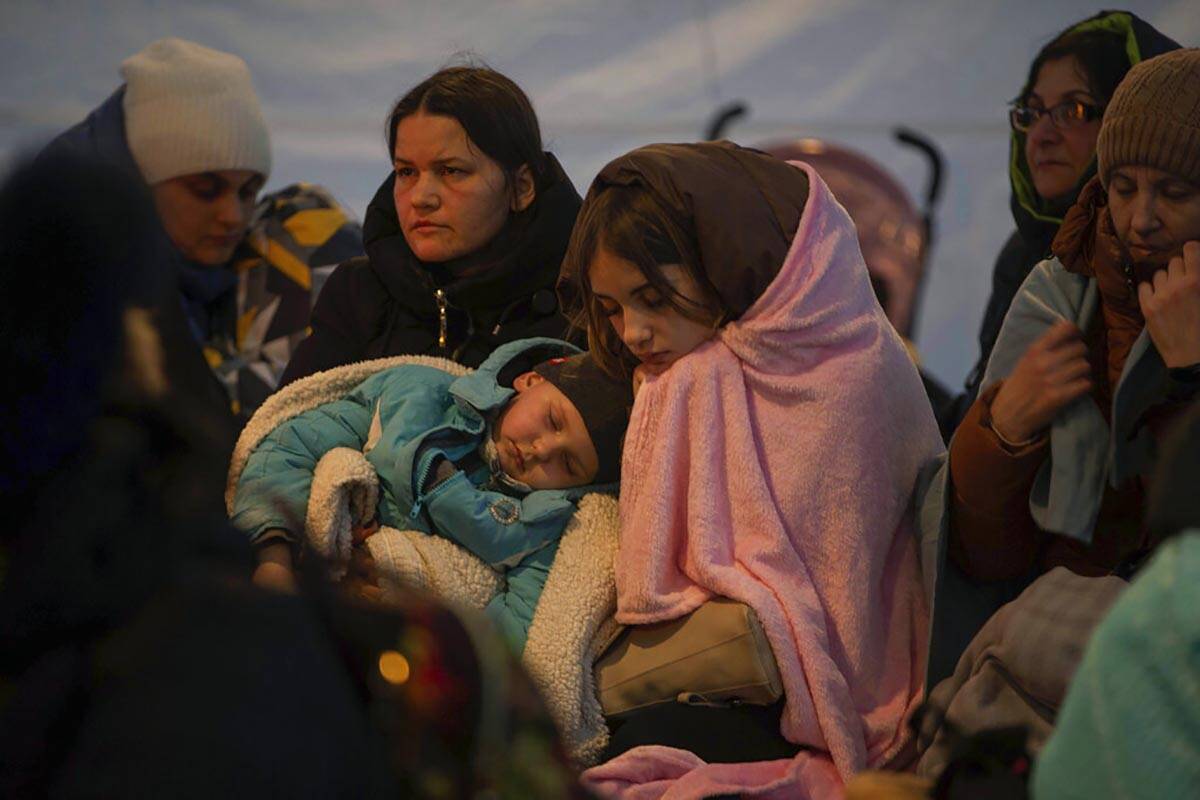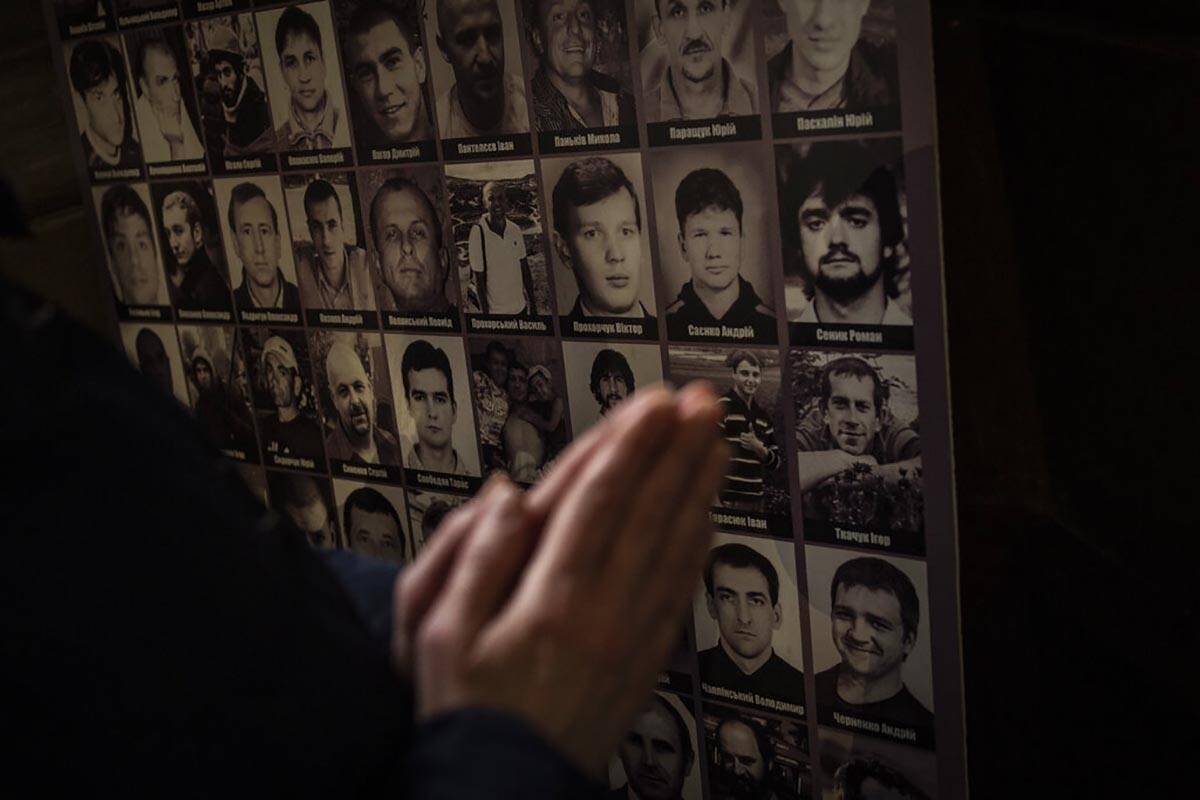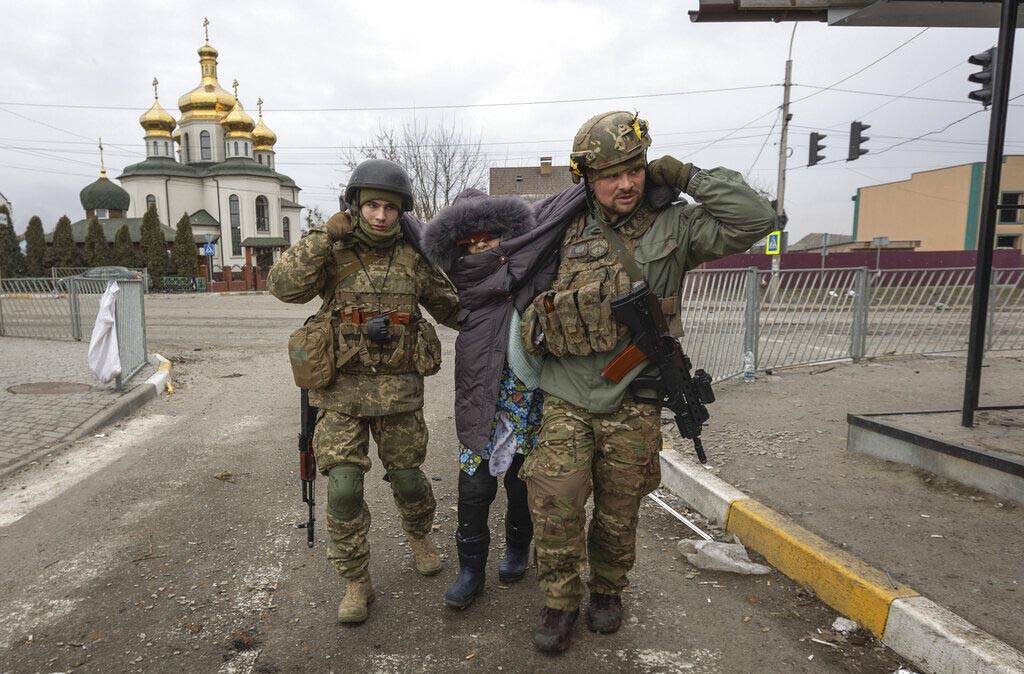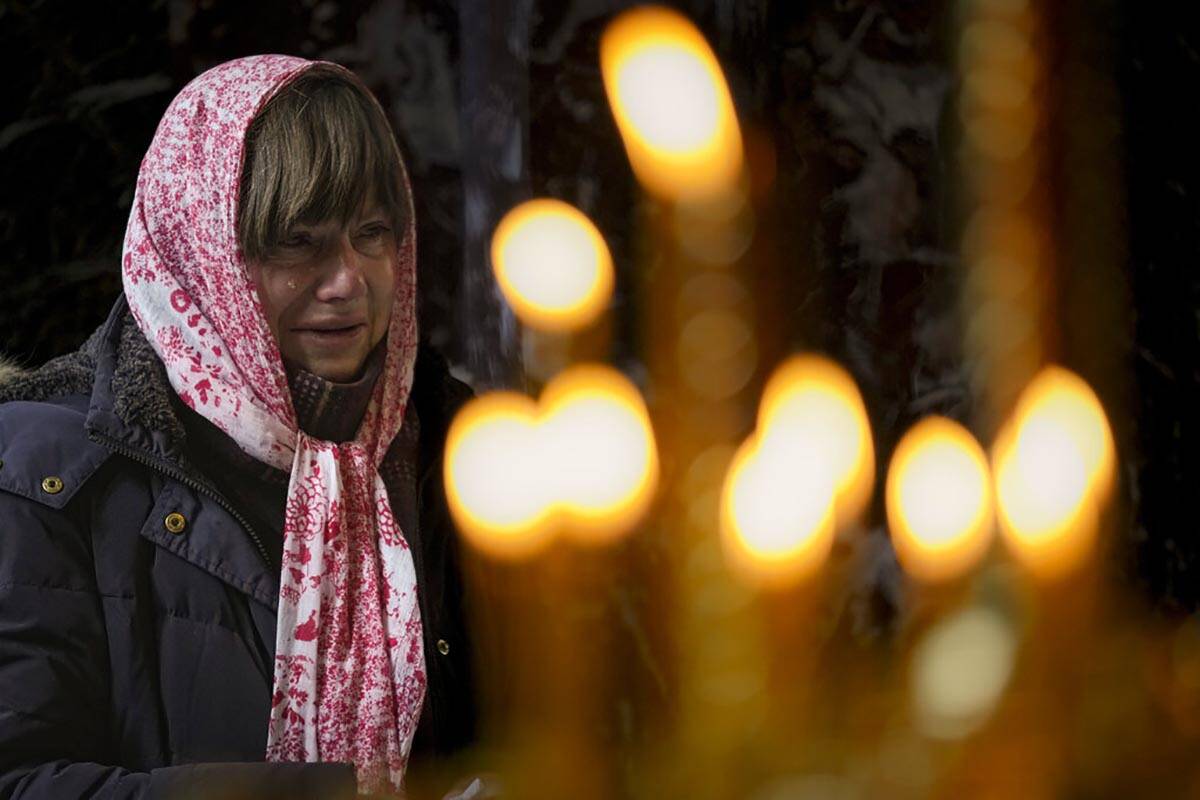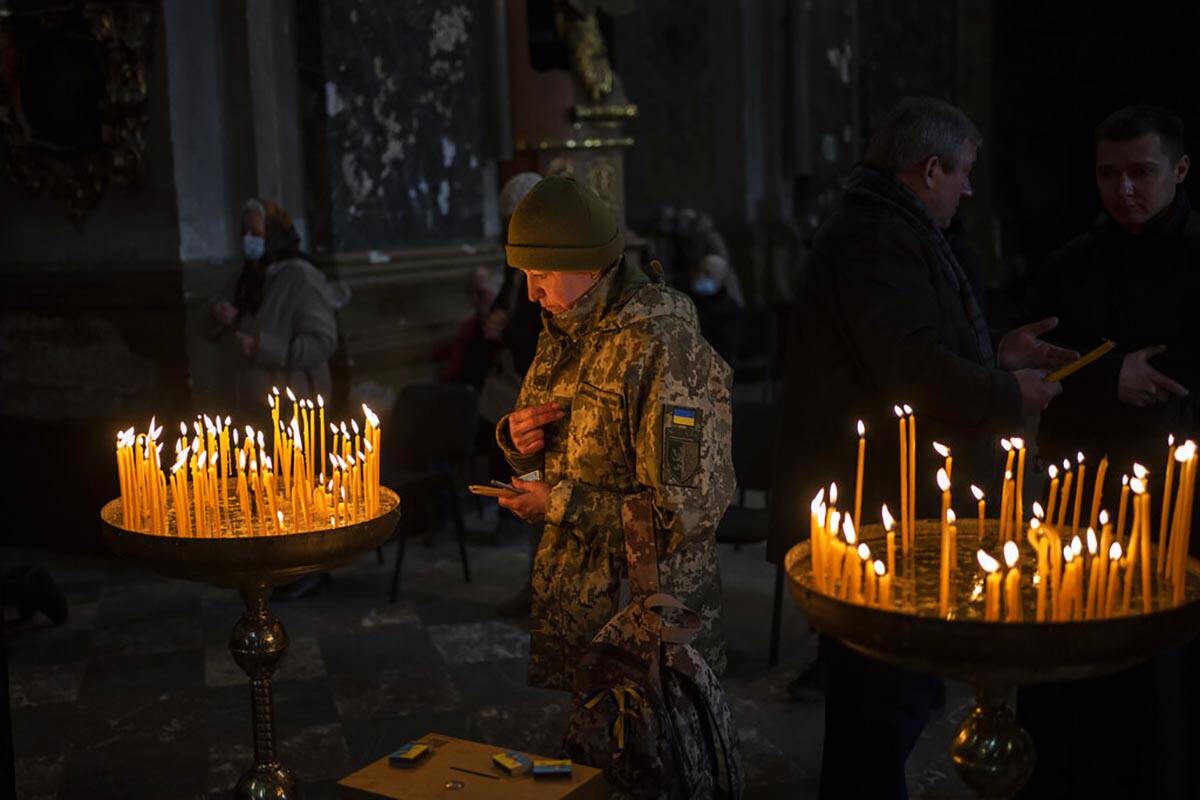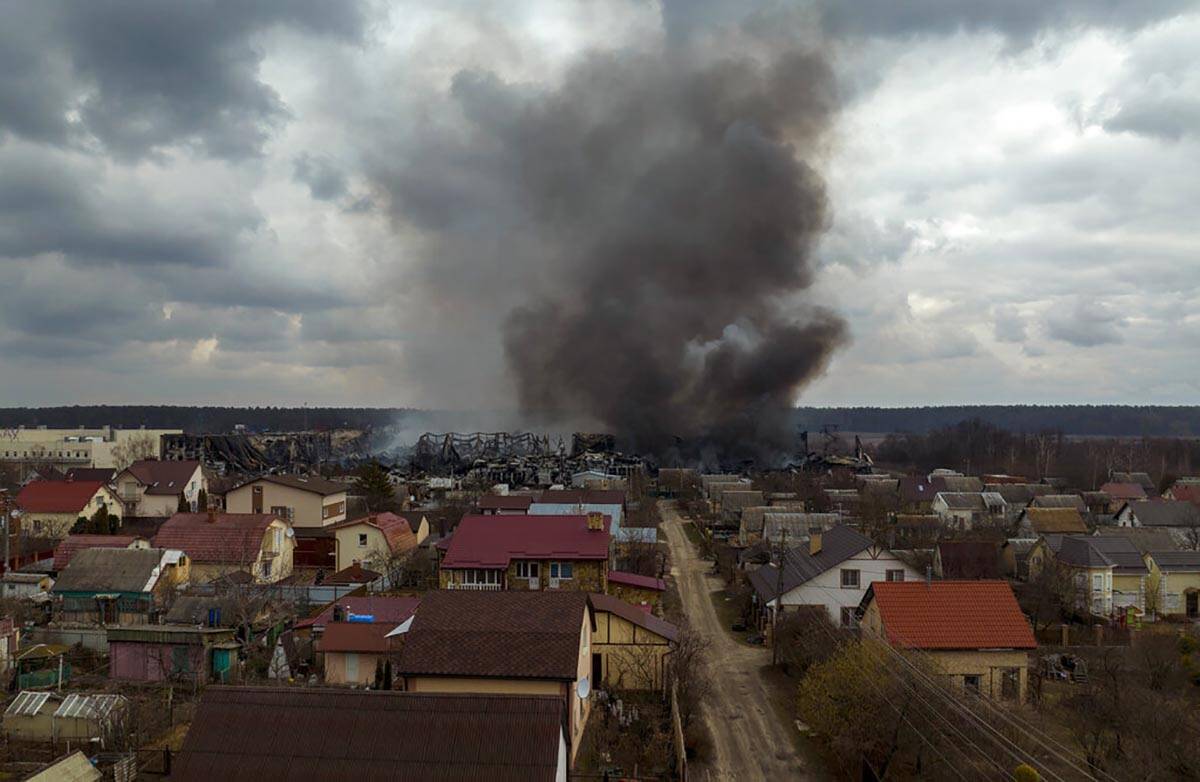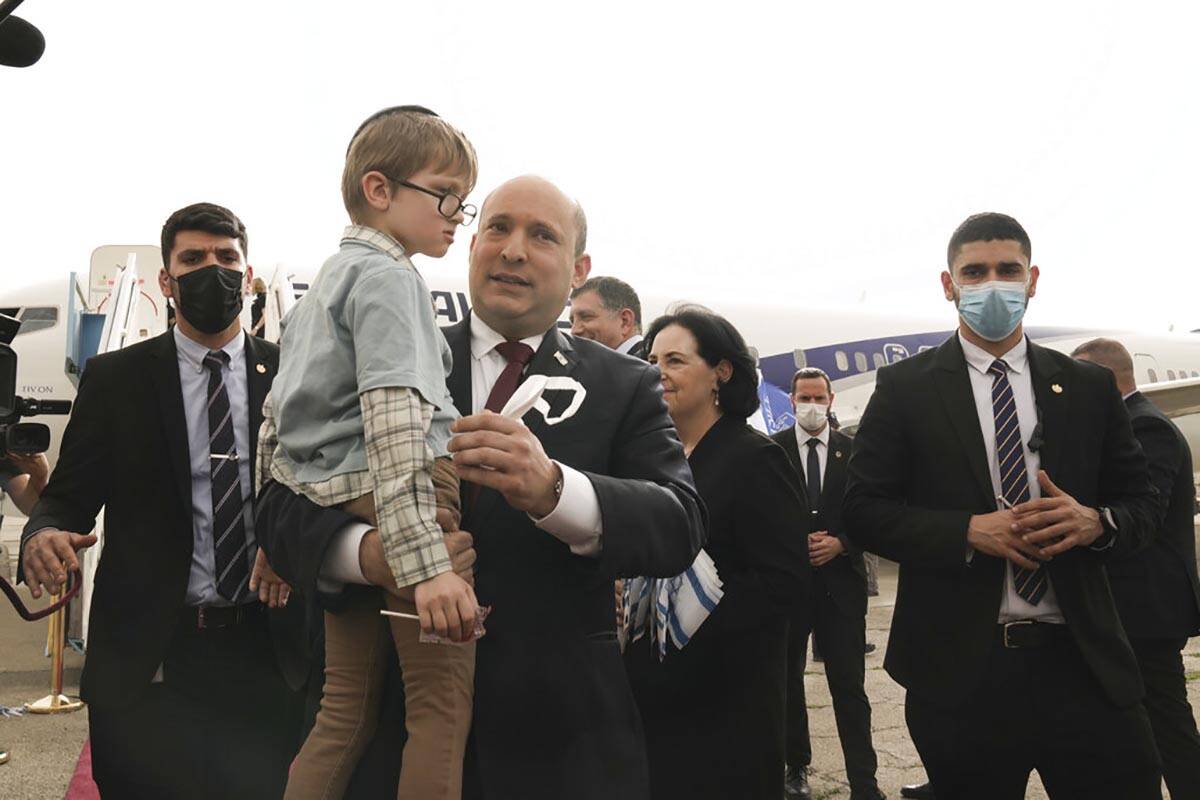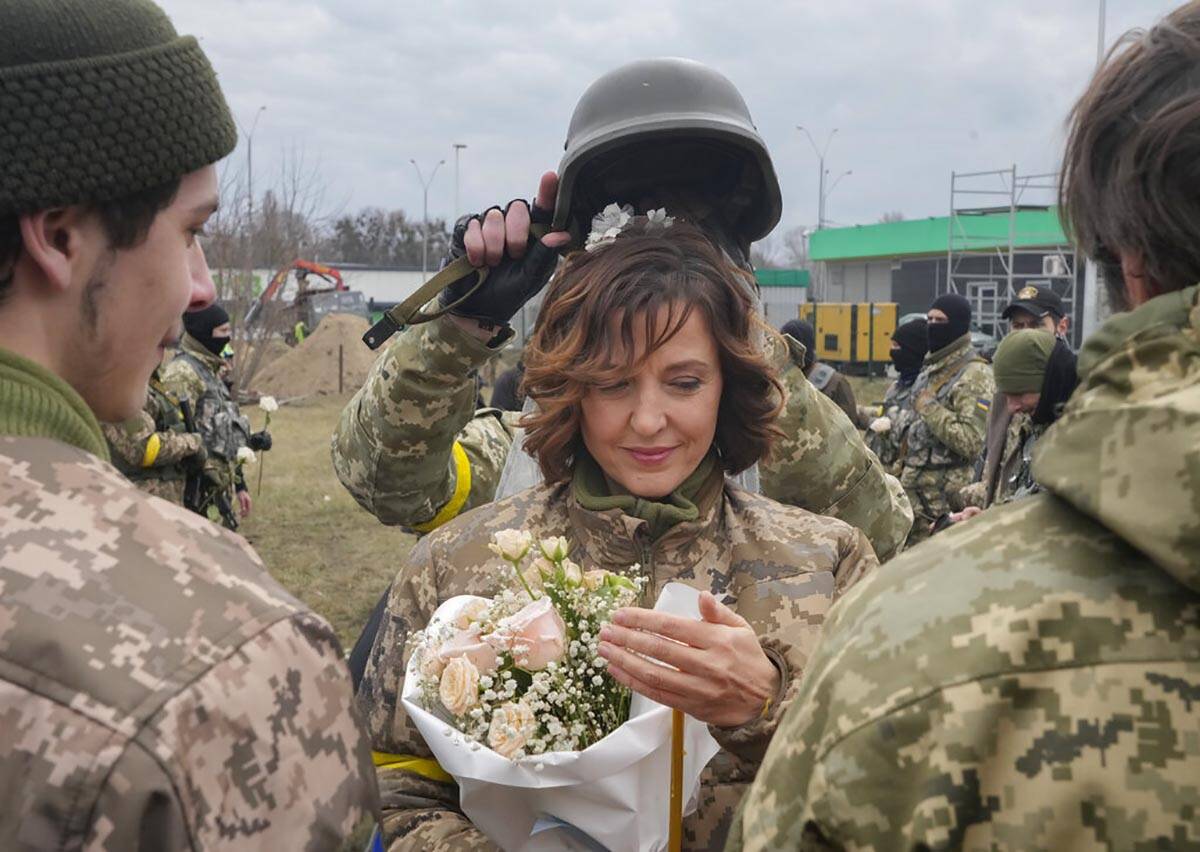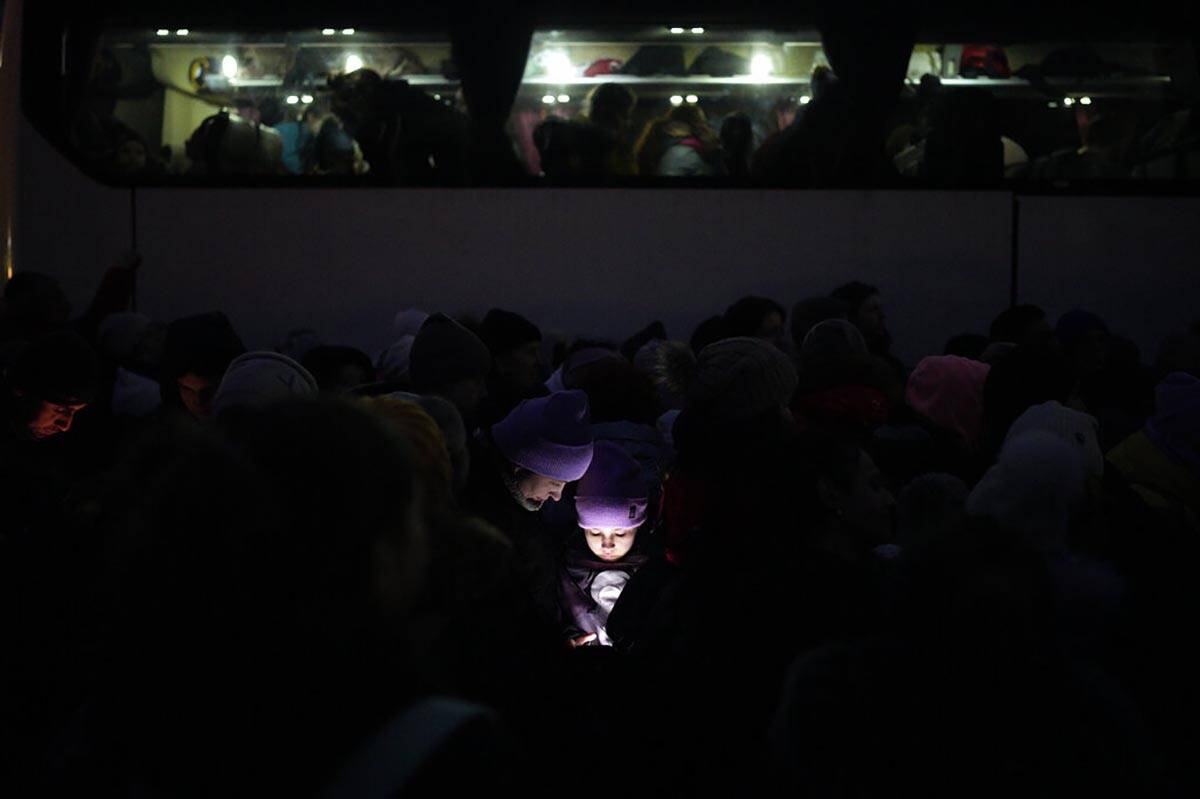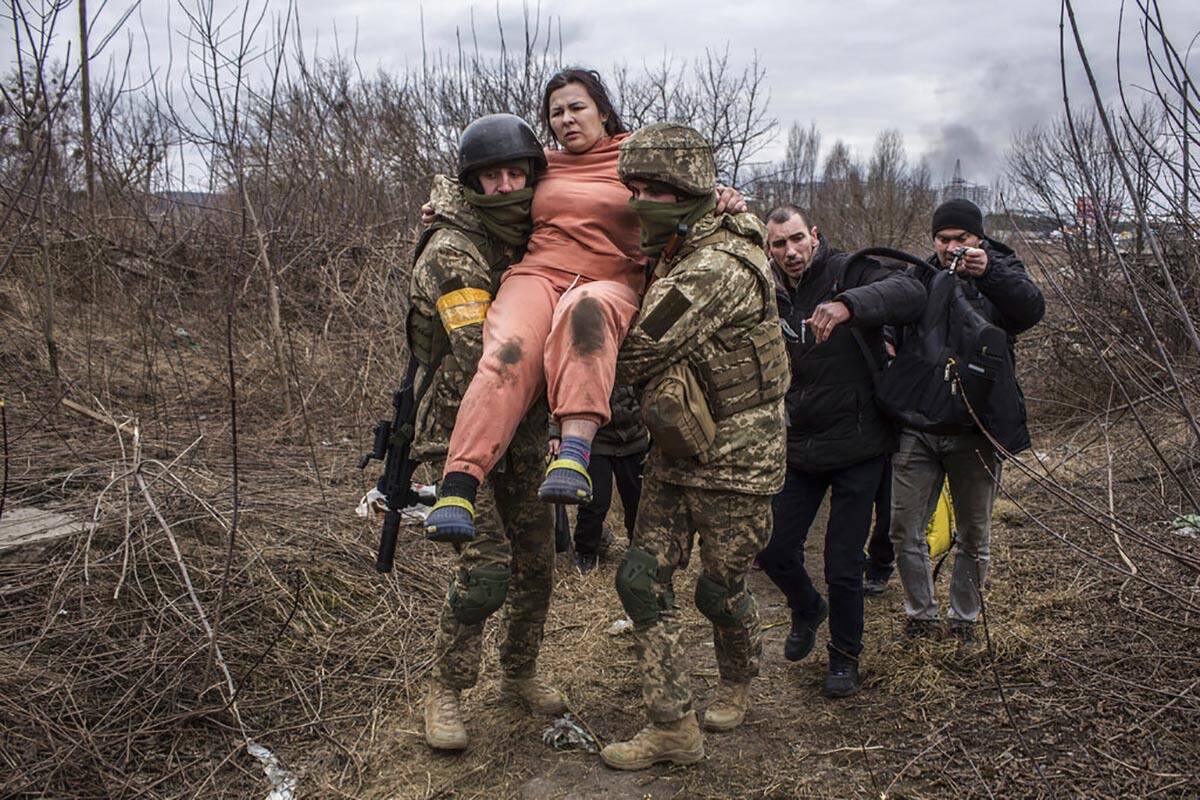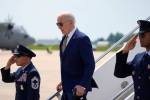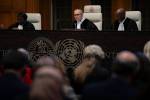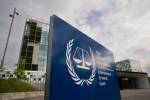Russia-Ukraine war Day 11: Russian announces cease-fire, escape corridors
The latest developments on the Russia-Ukraine war:
Russia announces cease-fire, evacuation routes
Russia announced a ceasefire starting Monday morning and the opening of humanitarian corridors in several areas, a day after hundreds of thousands of Ukrainian civilians attempting to flee to safety were forced to shelter from Russian shelling that pummeled cities in Ukraine’s center, north and south.
As Ukraine officials described a “catastrophic” situation during failed evacuation efforts in Kyiv’s suburbs, officials from both sides also planned a third round of talks Monday.
A Russian task force said a ceasefire would start Monday morning, the 12th day of the war, for civilians from the capital Kyiv, the southern port city of Mariupol, Kharkiv, Ukraine’s second-largest city, and Sumy. It wasn’t immediately clear if fighting would stop stop beyond the areas mentioned in the task force’s statement, or when the ceasefire would end.
The announcement follows two failed attempts to evacuate civilians from Mariupol, from which the International Committee of the Red Cross estimated 200,000 people were trying to flee. Russia and Ukraine have traded blame for the failure. The Russian task force said Monday’s ceasefire and the opening of the corridors was announced at the request of French President Emmanuel Macron, who spoke to Russian President Vladimir Putin on Sunday.
Evacuation routes published by Russia’s RIA Novosti news agency, citing the Defense Ministry, show that civilians will be able to leave to Russia and Belarus. Russian forces will be observing the ceasefire with drones, the task force said.
The earlier breakdown of evacuations came as Ukraine officials said that Russian shelling intensified across the country.
“Instead of humanitarian corridors, they can only make bloody ones,” Ukrainian President Volodymyr Zelenskyy said Sunday. “Today a family was killed in Irpin. Man, woman and two children. Right on the road. As in a shooting gallery.”
Putin said Moscow’s attacks could be halted “only if Kyiv ceases hostilities.” As he has often done, Putin blamed Ukraine for the war, telling Turkish President Recep Tayyip Erdogan on Sunday that Kyiv needed to stop all hostilities and fulfill “the well-known demands of Russia.”
Putin launched his invasion with a string of false accusations against Kyiv, including that it is led by neo-Nazis intent on undermining Russia with the development of nuclear weapons.
Pelosi says ban on Russia oil to be discussed
House Speaker Nancy Pelosi says the House is exploring legislation to further isolate Russia from the global economy, including banning the import of its oil and energy products into the U.S.
Amid rising gasoline prices in the U.S., the Biden administration has yet to call for an oil import ban on Russia.
In a letter to Democrats released Sunday night, Pelosi says the legislation under consideration would also repeal normal trade relations with Russia and Belarus and begin the process of denying Russia access to the World Trade Organization.
Pelosi says the House would also empower the Biden administration to raise tariffs on Russian imports.
Congress intends to approve the Biden administration’s request for $10 billion in humanitarian, military and economic support for Ukraine, Pelosi said, as part of omnibus government funding legislation this week.
Oil futures surge
The price of oil jumped more than $10 a barrel Monday as the conflict in Ukraine deepened amid mounting calls for harsher sanctions against Russia.
Brent crude oil briefly surged over $10 to nearly $130 a barrel early Monday. Benchmark U.S. crude was up nearly $9 at more than $124 a barrel.
20K from 52 nations volunteer to fight
Ukrainian Foreign Minister Dmytro Kuleba said more than 20,000 people from 52 countries have already volunteered to fight in Ukraine, where they will serve in a newly created international legion. He did not say how many of the foreign volunteers have arrived in Ukraine.
“The whole world today is on Ukraine’s side not only in words but in deeds,” Kuleba said on Ukrainian television Sunday night.
He did not name the home countries of the volunteers, saying that some of them forbid their citizens from fighting for other countries.
Kuleba also urged Ukrainians living in other countries to begin a campaign to push for Ukraine’s membership in the European Union.
2 of top 4 accounting firms to leave Russia
Two of the so-called Big Four accounting firms are pulling out of Russia over its war in Ukraine.
KPMG and PricewaterhouseCoopers both said Sunday they would end their relationships with their Russia-based member firms. KPMG said it was also pulling out of Belarus.
KPMG International said in a statement it would be “incredibly difficult” to have its Russia and Belarus firms leave the network. KPMG has more than 4,500 employees in the two countries.
PricewaterhouseCoopers said it has 3,700 employees at its PwC Russia firm and is working on an “orderly transition” for the business.
The two other Big Four companies – Deloitte and Ernst & Young – didn’t immediately return requests for comment Sunday.
Heavy nighttime attacks in center, north and south
Russian forces stepped up their shelling of Ukrainian cities in the center, north and south of the country late Sunday, presidential adviser Oleksiy Arestovich said.
“The latest wave of missile strikes came as darkness fell,” he said on Ukrainian television.
He said the areas that came under heavy shelling include the outskirts of Kyiv, Chernihiv in the north, Mykolaiv in the south, and Kharkiv, the country’s second-largest city.
Kharkiv officials said the shelling damaged the television tower and heavy artillery was hitting residential areas.
In Chernihiv officials said all regions of the city were coming under missile attack.
Arestovich described a “catastrophic” situation in the Kyiv suburbs of Bucha, Hostomel and Irpin, where efforts to evacuate residents on Sunday failed. He said the government was doing all it could to resume evacuations.
Evacuations also failed in Mariupol in the south and Volnovakha in the east because of the shelling.
Zelenskyy appeals for tougher sanctions, tribunal
President Volodymyr Zelenskyy appealed to the West to strengthen sanctions.
In a video statement Sunday evening, Zelenskyy heaped criticism on Western leaders for not responding to the Russian Defense Ministry’s announcement that it would strike Ukraine’s military-industrial complex, while telling employees of these defense plants not to go to work.
“I didn’t hear even a single world leader react to this,” Zelenskyy said. “The audacity of the aggressor is a clear signal to the West that the sanctions imposed on Russia are not sufficient.”
Zelenskyy called for organizing a “tribunal” to bring to justice those who order and carry out such crimes.
“Think about the sense of impunity of the occupiers that they can announce such planned atrocities,” he said.
The Russian Defense Ministry announced Sunday that its forces intend to strike Ukraine’s military-industrial complex with what it said were precision weapons.
“We urge all personnel of Ukrainian defense industry plants … to leave the territory of their enterprises,” ministry spokesman Igor Konashenkov said in a statement carried by the state news agency Tass.
Mariupol evacuation halted again
Russian troops shelled encircled Ukraine cities and a second attempt to evacuate civilians from Mariupol failed as the besieged port city was shelled.
Ukrainian officials said the attacks disrupted what was supposed to have been a cease-fire at the time that a pro-Russian official had said safe-passage corridors were to open.
The number of Ukrainians forced from their country increased to 1.5 million, and the Kremlin’s rhetoric grew, with Russian President Vladimir Putin warning that Ukrainian statehood is in jeopardy. He likened the West’s sanctions on Russia to “declaring war.”
Nuclear agency: Russians tighten grip on plant
The International Atomic Energy Agency has said Russian forces are tightening their grip on the Zaporizhzhya nuclear plant, Ukraine’s largest, that they seized last week.
The director general of the agency, Rafael Mariano Grossi, said Sunday Ukrainian staff members are now required to seek approval for any operation, even maintenance, from the Russians, and that they have impeded normal communications by switching off some mobile networks and internet at the site.
Ukraine’s regulatory authority said that phone lines, as well as e-mails and fax, are no longer working. Grossi said he is “extremely concerned about these developments,” adding that for the plant to operate safely, “staff must be allowed to carry out their vital duties in stable conditions, without undue external interference or pressure.”
Violence stops planned civilian evacuations again
Ukrainian Interior Ministry adviser Anton Gerashchenko blamed Russian artillery fire for halting a second attempt in as many days to evacuate civilians from Mariupol.
The plan agreed to with Russian forces had been to allow people fleeing the combat and shelling to leave along designated humanitarian “green corridors,” but Gerashchenko said on Telegram that Russians had not respected the truce.
A day earlier, Ukrainian officials similarly said Russian artillery fire and airstrikes had prevented residents from leaving before the agreed-to evacuations got underway in Mariupol and the nearby city of Volnovakha. Then, Putin accused Ukraine of sabotaging the effort.
Russia has sought to cut off Ukraine’s access to the Sea of Azov in the south. Capturing Mariupol could allow Russia to establish a land corridor to Crimea, which it annexed in 2014.
Oleksiy Arestovich, an adviser to Zelenskyy, said Ukrainian officials and international humanitarian organizations were working with Russia through intermediaries to establish humanitarian corridors from the hard-hit Kyiv suburbs of Bucha and Hostomel.
The humanitarian situation
The death toll of the conflict has been difficult to measure. The U.N. human rights office said at least 364 civilians have been confirmed killed since the Feb. 24 invasion, but the true number is probably much higher.
The World Health Organization said it verified at least six attacks that have killed six health care workers and injured 11 others.
Attacks on health care workers are a violation of international humanitarian law, WHO Director-General Tedros Adhanom Ghebreyesus said on Twitter.
The U.N. World Food Program says millions of people inside Ukraine, a major global wheat supplier, will need food aid “immediately.”
Ukrainian refugees continued to pour into neighboring countries, including Poland, Romania and Moldova. The number of people who have left since fighting began has now reached 1.5 million, according to U.N. refugee agency.
Russia expands effort to block news coverage
Russian authorities on Sunday continued to block independent news outlets and to arrest protesters in an effort to tighten control over what information the domestic audience sees about the invasion of Ukraine.
Multiple independent online outlets were blocked on Sunday, on top of dozens of others that were blocked last week. Others decided to halt their operations in Russia because of new repressive laws or refused to cover the invasion at all because of the pressure. Hundreds of protesters have been detained across Russia.
The new additions to the list of blocked media included Mediazona, a news site that covers Russia’s police and justice system and has been an indispensable source of information about political arrests and high-profile court cases; the website of Snob magazine; the Agentstvo investigative news outlet; the 7x7 site covering regional news; the Troitsky Variant popular science newspaper that has published an open letter decrying the invasion; and two regional news sites that also spoke out against the attack.
U.S.-funded broadcaster Radio Free Europe/Radio Liberty announced Sunday it was suspending its operation in Russia after it said the country intensified pressure on its journalists and tax authorities initiated bankruptcy proceedings against it.
“(Russian communications and media agency) Roskomnadzor demanded we delete our entire website. Yes, we received this demand from the agency — to block ourselves. Because we incorrectly cover Russia’s attack on Ukraine and call the war a war,” Mediazona said in a statement.
“We were prepared for this. In recent days, military censorship has been effectively introduced in Russia, and there are almost no independent media left in the country. We understand all our risks, but we continue to work — this is our duty to our readers and to ourselves,” the outlet said and listed several ways Russian readers can get around the block.
Netflix and TikTok suspended most of their services in Russia on Sunday as the government cracks down.
TikTok said Russian users of its popular social media app would no longer be able to post new videos or livestreams and they also wouldn’t be able to see videos shared from elsewhere in the world.
Netflix said it was suspending its service in Russia but didn’t provide additional details.
Seeking consoliation in church
Their hands clasped in prayer and faces ridden with fear and sadness, some residents of Lviv sought consolation at a Sunday Mass at a Catholic church in the city in western Ukraine.
The 17th-century church was silent during the ceremony, reflecting the moment laden with emotion and concern because of the ongoing Russian invasion.
Some people in the church held small papers with the names of their loved ones written on them. Others just stood in silence, their heads bowed during prayer.
Built by Jesuit missionaries, the Saints Peter and Paul Garrison Church in Lviv was damaged during World War II and used to store more than 2 million books during the Soviet Era.
Since it reopened in 2011 after renovation, it has served as a military church, offering prayer and consolation to Ukrainian service personnel.
In the past 11 days of the Russian invasion, the church has become more important than ever, even as Lviv itself hasn’t seen intense shelling and destruction as other cities in the country.
What else is happening on the ground?
Russian forces launched hundreds of missiles and artillery attacks across the country, including powerful bombs dropped on residential areas of Chernihiv, a city north of the capital of Kyiv, Ukrainian officials said. But a miles-long Russian armored column threatening the capital remained stalled outside Kyiv.
Zelenskyy said Ukrainian forces were holding key cities in the central and southeastern part of the country, while the Russians were trying to block and keep encircled Kharkiv, Mykolaiv, Chernihiv and Sumy.
Ukrainian forces were also defending Odesa, Ukraine’s largest port city, from Russian ships, Ukrainian presidential adviser Oleksiy Arestovich said.
Russian troops took control of the southern port city of Kherson last week.
Zelenskyy pushes call for no-fly zone
Zelenskyy pushed his call for foreign countries to impose a no-fly zone over Ukraine. Establishing a no-fly zone would risk escalating the conflict by involving foreign militaries directly. Although the United States and many Western countries have backed Ukraine with weapons shipments, they have sent no troops.
Zelenskyy said in a video address on Sunday that “the world is strong enough to close our skies.”
NATO countries have ruled out policing a no-fly zone, which would bar all unauthorized aircraft from flying over Ukraine.
Russian Defense Ministry spokesman Igor Konashenkov said Sunday that some Ukrainian combat planes had redeployed to Romania and other Ukraine neighbors he didn’t identify. He warned an attack from planes operating out of those nations could be deemed an engagement by them in the conflict.
Also Sunday, European Union leader Charles Michel said closing Ukraine’s airspace could spark a world war.
Directly witnessed or confirmed by The Associated Press
Onlookers in Chernihiv cheered as they watched a Russian military plane fall from the sky and crash, according to video released by the Ukrainian government. In Kherson, hundreds of protesters waved blue and yellow Ukrainian flags and shouted, “Go home.”
In Mariupol, Associated Press journalists witnessed doctors make unsuccessful attempts to save the lives of wounded children, pharmacies ran bare and hundreds of thousands of people faced food and water shortages in freezing weather.
In Irpin, near Kyiv, a sea of people on foot and even in wheelbarrows trudged over the remains of a destroyed bridge to cross a river and leave the city. Assisted by Ukrainian soldiers, they lugged pets, infants, purses and flimsy bags stuffed with minimal possessions. Some of the weak and elderly were carried along the path in blankets and carts.
Kyiv’s central train station remained crowded with people desperate to leave, and frequent shelling could be heard from the center of the capital city.
Diplomatic efforts
U.S. Secretary of State Antony Blinken was in Moldova pledging America’s support to the small Western-leaning former Soviet republic. The country is coping with an influx of refugees from Ukraine and keeping an eye on Russia’s intensifying war with its neighbor.
Blinken says the United States and its allies are having a “very active discussion” about banning the import of Russian oil and natural gas in an escalation of sanctions.
Macron, Putin talk mostly about nuclear safety
The French presidency said the call between Putin and French President Emmanuel Macron on Sunday focused primarily on the safety of Ukraine’s nuclear plants.
The call was on request from Macron and lasted almost two hours, the Elysee said.
A French official said Macron insisted on the need to ensure the International Atomic Energy Agency’s safety standards are respected at Chernobyl and in other nuclear plants. He told Putin these facilities must not be targeted by a Russian offensive or caught in the fighting.
Putin said he does not intend to attack nuclear plants and agreed on the principle of a “dialogue” between IAEA, Ukraine and Russia on this issue, according to the official, who spoke anonymously in line with the French presidency’s practices. Potential talks are to be organized in the coming days, he said.
Macron reiterated his call for Russia to stop its military operations and insisted on the need to protect the civilians and allow access to humanitarian aid.
“The (humanitarian) situation is difficult” including in Mariupol on Sunday, the official stressed. “Our demands remain the same: we want Russia to respond to these demands… very quickly and clearly.”
Jewish orphans land in Israel
A group of 100 Ukrainian Jewish orphans who were evacuated from the country after Russia invaded have landed in Israel.
The children arrived Sunday a few hours before two flights carrying around 300 other Ukrainian Jewish immigrants landed.
The children were evacuated from the central Ukrainian city of Zhytomyr and brought to Israel by the KKL-JNF organization.
The Jewish Agency for Israel, a quasigovernmental organization that manages immigration affairs, said that it had received 5,500 urgent requests by Ukrainian Jews to move to Israel since Russia attacked on Feb. 24.
Refugee totals soar
— The head of the United Nations’ refugee agency said Sunday that more than 1.5 million refugees have crossed from Ukraine into neighboring countries since Russia invaded.
— Poland’s border guard agency says that over 922,000 refugees have crossed the border from Ukraine since Feb. 24, when Russia launched its invasion.
The agency said on Twitter that a record one-day number of over 129,000 crossed into Poland on Saturday, and almost 40,000 between midnight and 7 a.m. on Sunday.
— Romania’s border police say more than 227,000 Ukrainian citizens have entered Romania in total since the crisis began and more than 155,000 of them have already left the country.
During a visit on Saturday to Romania’s northern border at Siret, Romanian President Klaus Iohannis said that “no Ukrainian will be denied entry into Romania.”
He said Romanian authorities believe that the situation “will continue for a long time, and the complications will worsen.” The president added: “We believe that this humanitarian catastrophe will spread, that a lot of help will be needed here, but also in Ukraine.”
Pope sends 2 cardinals to Ukraine
Pope Francis says he has dispatched two cardinals to Ukraine, a highly unusual move.
The pontiff said Sunday that “the Holy See is willing to do everything to put itself in service for peace.” The papal almsgiver, Cardinal Konrad Krajewski, has been dispatched with aid, along with Cardinal Michael Czerny, who is head of the papal office that deals with migration, charity, justice and peace.
Israel not giving up, prime minister says
Israel’s prime minister says his country will continue to assist in finding a diplomatic solution to the Ukraine crisis, even if the chances for success are few.
Naftali Bennett spoke Sunday to a meeting of his Cabinet, hours after he returned from a surprise meeting with Russian President Vladimir Putin in Moscow, where the two discussed the war with Ukraine. He then traveled to Germany where he met Chancellor Olaf Scholz.
Bennett revealed no details from his talks with Putin, but called the country’s mediation efforts “our moral duty.” Earlier, his office said he and Ukrainian President Volodymyr Zelenskyy spoke by phone Sunday morning, the third such call between the two leaders over the past day.
Bennett also told his Cabinet Israel was readying for a wave of Jewish immigration from Ukraine. Israel is also preparing to allow entry to a small number of non-Jewish Ukrainians fleeing the conflict.
Israel is one of the few countries that has good working relations with both Russia and Ukraine.
Radio Free Europe stops Russian operations
Radio Free Europe/Radio Liberty says it has suspended its operations in Russia after Moscow intensified a crackdown on what it deems to be “fake” reports and tax authorities initiated bankruptcy proceedings against it.
The U.S.-funded, Prague-based broadcaster’s president and chief executive, Jamie Fly, said “this is not a decision that RFE/RL has taken of its own accord, but one that has been forced upon us by the Putin regime’s assault on the truth.”
The broadcaster, which has had a physical presence in Russia since 1991, plans to continue reporting on Russia and the war in Ukraine from abroad.
The announcement came after Russia on Friday passed a law foreseeing prison sentences of up to 15 years for spreading what is deemed to be fake information about its armed forces.
In addition, RFE/RL said that Russian authorities initiated bankruptcy proceedings on Friday. It said it is seeing “the culmination of a years-long pressure campaign against RFE/RL.”



